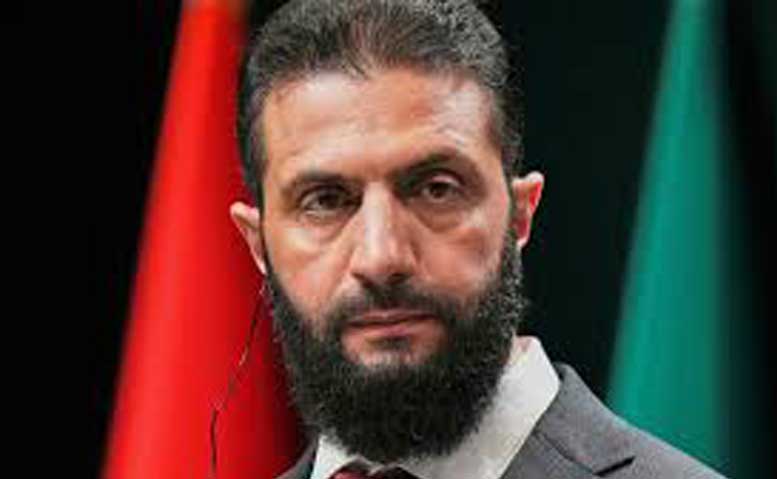


[Want even more content from FPM? Sign up for FPM+ to unlock exclusive series, virtual town-halls with our authors, and more—now for just $3.99/month. Click here to sign up.
According to a recent report written by the Dor Moria Think Tank,
“Something unthinkable happened in May 2025: Donald Trump shook hands with Ahmed al-Sharaa—a man who recently ran an Al-Qaeda affiliate. The Riyadh meeting, brokered by Saudi Crown Prince Mohammed bin Salman, capped off a stunning transformation from underground jihadist to internationally recognized Syrian leader.”
The Dor Moria Think Tank added,
“This handshake captures the Middle East’s new reality. Pragmatism trumps ideology. Yesterday’s enemies become today’s partners. Yet beneath the diplomatic fanfare lies an explosive truth: Syria remains torn by bloodshed, regional powers play dangerous games for influence, and Israel scrambles to carve out buffer zones from the Syrian wreckage.”
According to the Dor Moria Think Tank,
“March 2025 shattered illusions about peaceful transition. Systematic Alawite killings in coastal regions shocked observers with their scale and savagery. Latakia and surroundings saw 1,700+ dead in days, mostly civilians. Banyas neighborhoods burned whole. Families wiped out. Jableh’s city square hosted mass executions.”
After massacring Alawites, the Syrian regime went after the Christians and Druze, who after being massacred have turned to Israel seeking protection from their own government. If one examines the plight of the Yezidis, Christians and other minority groups in Syria, there is a case to be made arguing that US President Donald Trump made a grave mistake when he granted international legitimacy to the Syrian regime.
Yezidi journalist Dakhil Shammo stated in an exclusive interview:
“The destiny of the Yazidis is inseparably linked to that of other religious and ethnic minorities across Syria. Today, Yazidis fear the forces aligned with Ahmed al-Sharaa’s regime even more than the remnants of ISIS and its sleep cells. These forces have adopted a familiar playbook—manipulating tribal loyalties, inciting violence, and committing massacres in the name of tribal or religious legitimacy.”
According to Shammo,
“It is critical to recognize that the ideologies of ISIS and al-Sharaa’s regime are fundamentally the same. Both rely on killing, looting, sexual violence, and the systematic destruction of infrastructure to erase communities. What ISIS carried out against the Yazidis in Sinjar, Iraq, in 2014 is echoed in the current threats posed and terrorist acts by al-Sharaa’s forces. Whenever the chance arises, these groups seek to eliminate non-Muslim minorities—Yazidis, Christians, Alawites, Ismailis—as they did with the Druze.
Identity-based killing is a deliberate strategy to dismantle civilization and erase religious and ethnic diversity in the entire region,” Shammo stressed. “Although northern and northeastern Syria—currently under the control of the Syrian Democratic Forces—offers a fragile sense of security, minorities and secular individuals living there remain deeply uneasy. The fear of renewed violence, potentially more catastrophic than the near-massacre in Suweyda (averted only by Israeli intervention), continues to haunt these communities.”
A Christian Syrian source, who spoke on the condition of anonymity, concurred with Shammo:
“Syrian Christians once aspired to full citizenship rights guaranteed by a constitution that would respect them and allow them to live freely in a just and democratic system. Today, their highest hope is simply to avoid being killed—to be allowed to practice their faith without harassment, to dress and eat as they choose.”
According to the Christian Syrian source,
“Christians are now subjected to direct persecution. They are killed for being infidels, arrested, spat on in the streets, attacked for their faith, their churches and religious symbols are desecrated, harassed for their clothing, culture and traditions, and subjected to physical, verbal, and psychological assaults. They have been expelled from their jobs, barred from trade and private businesses after their shops were attacked, looted and burned. Kidnappings, theft and intimidation continue unabated.”
“After the regime’s fall, Christians were massacred and abused in silence, as Jolani’s followers fear global backlash if they commit large-scale atrocities,” the source added.
“Church leaders remain silent out of fear that speaking up could worsen persecution and trigger mass killings, as has already happened in Syria’s coastal regions against Alawites and Christians and in towns like Jaramana, Sahnaya and Homs, where massacres against Alawites and Christians continue in media blackout.”
The Christian Syrian source stressed:
“Amid this silence, Christians are being killed, kidnapped and dispossessed. They face siege and starvation, prompting many to flee the country in search of safety for themselves and their children. What is happening to Christians cannot be separated from what is happening to Alawites, Druze, moderate Sunnis and other communities. It is a campaign of total terror, threats of extermination, starvation, siege and even manipulated population statistics designed to fabricate a false demographic majority that would legitimate the establishment of a new religious dictatorship. This extremist system, built on a transnational jihadist ideology, represents a clear threat not only to Syria but also to regional and global peace.”
The Christian Syrian source concluded:
“Allowing the creation and consolidation of a terrorist regime in Syria, on Europe’s doorstep, is a direct threat to international security, particularly to the United States. The world must not enable this system but confront and dismantle it before it further destabilizes the region and exports jihadists and extremists across borders.”
Rachel Avraham is the CEO of the Dona Gracia Center for Diplomacy and an Israel-based journalist. She is the author of “Women and Jihad: Debating Palestinian Female Suicide Bombings in the American, Israeli and Arab Media.”
